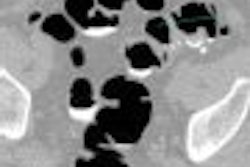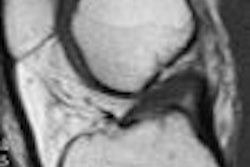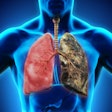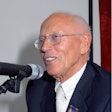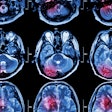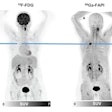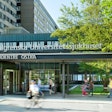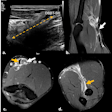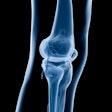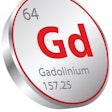SAN DIEGO - French researchers have found that combining chemotherapy with radiation treatment is effective and tolerable for elderly patients with locally advanced non-small cell lung cancer (NSCLC).
In a study presented at a poster session at this week's American Association for Cancer Research (AACR) meeting, investigators from Hospital Avicenne in Bobigny analyzed the efficacy and side effects resulting from a regimen of paclitaxel and carboplatin, or cisplatin and etoposide, plus radiation therapy in patients older than age 65. They compared these results to those from a group of patients younger than 65.
Compared with radiation alone, chemoradiotherapy is considered the treatment of choice for unresectable stage III NSCLC, prolonging survival better than radiation alone. However, it's considered a good choice only for those patients who have a performance status of 1 or 2 on a commonly used scale of physical performance, with 0 classified as fully active, 1 as active but with some restrictions, and 2 as ambulatory but unable to work.
Previous studies on chemoradiotherapy use in the elderly with NSCLC have been conflicting. In a paper published in the Journal of Clinical Oncology in 2007, Gridelli and colleagues found that the beneficial results seen with adjuvant chemotherapy (plus radiotherapy) in NSCLC might not be achieved in the elderly, who are at higher risk of toxicity (JCO, May 10, 2007, Vol. 25:14, pp. 1898-1907).
At the same time, other earlier studies have found that fit elderly patients can benefit from concurrent chemotherapy and daily radiotherapy.
In the French trial, 45 patients with stage III NSCLC were previously randomized to receive chemotherapy with cisplatin and etoposide, or a regimen of paclitaxel and carboplatin. Patients were enrolled in the trial between January 2000 and March 2004. Concurrent radiotherapy (61.2 Gy) was delivered in 34 fractions with 1.8 Gy per fraction for seven weeks.
In the previous trial, the researchers aimed to evaluate the sensitizing effects as well as the toxicity of carboplatin, which has a better toxicity profile than cisplatin. In the new analysis, the objective was to compare the efficacy and tolerability of the chemotherapy regimens plus radiotherapy in older versus younger patients.
The study included 15 patients older than 65 (mean age of 70) and 30 patients younger than 65 (mean age of 54). Six of the elderly patients and 17 of the younger patients received the paclitaxel/carboplatin regimen.
The results indicated that 60% of older patients and 60% of younger patients achieved a partial response. Twenty percent of older patients had stable disease versus 14% of younger patients, and 20% of older patients experienced progressive disease versus 18% of younger patients. In the older group, one patient is still alive, and in the younger group, two are still alive -- an indication of the bleak outlook for patients with stage III lung cancer.
Grade IV hematological toxicities were more frequent in the older group, with one patient experiencing thrombopenia grade IV and one with febrile neutropenia. In the younger patients, none experienced thrombopenia grade IV, while one experienced febrile neutropenia. Dysphagia and asthenia were the most frequent side effects in both groups, but the occurrence of these side effects in both younger and older patients was equivalent, according to the researchers.
Despite the small sample size in the study, the regimen of paclitaxel and carboplatin was both effective and feasible in older patients, they noted.
"There was no difference in the response rates, and the toxicities were very similar in both younger and older patients. So this regimen could be an alternative for older patients," said researcher Dr. Gaetan Des Guetz. "Based on this study, it would seem necessary to institute new studies that would evaluate the quality of life as well as the toxicity of chemoradiotherapy regimens for the elderly."
However, the benefit/risk profile of chemoradiotherapy for elderly patients should be evaluated on an individual basis for older patients with advanced NSCLC because of the possible hematological toxicities, Des Guetz noted.
By Barbara Boughton
AuntMinnie.com contributing writer
April 16, 2008
Related Reading
Nimotuzumab boosts effect of ionizing radiation against some NSCLCs, March 31, 2008
Concurrent chemoradiation offers best survival in advanced lung cancer, August 20, 2007
Chemo added to radiation improves survival in elderly lung cancer patients, August 2, 2007
Copyright © 2008 AuntMinnie.com





